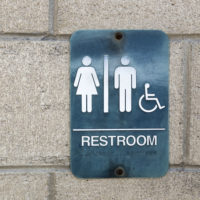As nonbinary teenagers push for driver’s licenses that reflect their identity, a fraught debate over the nature of gender has arrived in the nation’s statehouses.
Ever since El Martinez started asking to be called by the gender-neutral pronouns “they/them” in the ninth grade, they have fielded skepticism in a variety of forms and from a multitude of sources about what it means to identify as nonbinary.
There are faculty advisers on El’s theater crew who balk at using “they” for one person; classmates at El’s public school on the outskirts of Boston who insist El can’t be “multiple people”; and commenters on El’s social media feeds who dismiss nonbinary gender identities like androgyne (a combination of masculine and feminine), agender (the absence of gender) and gender-fluid (moving between genders) as lacking a basis in biology.
Even for El’s supportive parents, conceiving of gender as a multidimensional sprawl has not been so easy to grasp. Nor has El’s suggestion that everyone state their pronouns gained much traction.
So last summer, when the Massachusetts State Legislature became one of the first in the nation to consider a bill to add an “X” option for nonbinary genders to the “M” and “F” on the state driver’s license, El, 17, was less surprised than some at the maneuver that effectively killed it.
Beyond the catchall “X,” Representative James J. Lyons Jr. (he/him), a Republican, had proposed that the bill should be amended to offer drivers 29 other gender options, including “pangender,” “two-spirit” and “genderqueer.” Rather than open the requisite debate on each term, leaders of the Democratic-controlled House shelved the measure.
“He articulated an anxiety that many people, even folks from the left, have: that there’s this slippery slope of identity, and ‘Where will it stop?’” said Ev Evnen (they/them), director of the Massachusetts Transgender Political Coalition, which is championing a new version of the bill.
As the first sizable group of Americans to openly identify as neither only male nor only female has emerged in recent years, their requests for recognition have been met with reservations that often cross partisan lines. For their part, some nonbinary people suggest that concerns about authenticity and grammar sidestep thornier questions about the culture’s longstanding limits on how gender is supposed to be felt and expressed.
“Nonbinary gender identity can be complicated,” said Mx. Evnen, 31, who uses a gender-neutral courtesy title. “It’s also threatening to an order a lot of people have learned how to navigate.”
And with bills to add a nonbinary marker to driver’s licenses moving through at least six legislatures this session, the expansive conception of gender that many teenagers can trace to middle-school lunch tables is being scrutinized on a new scale.
NYTimes.com, May 29, 2018 by Amy Harmon
Click here to read the entire article.
The post Which Box Do You Check? Some States Are Offering a Nonbinary Option appeared first on Time For Families.
Source: Time for Families
















